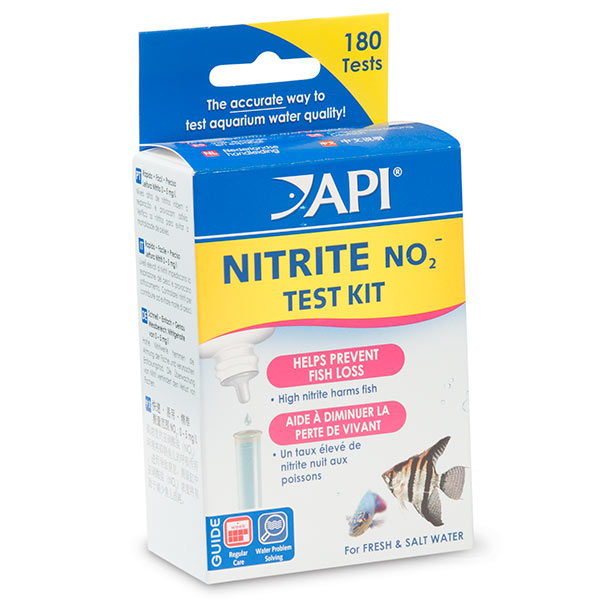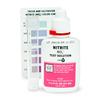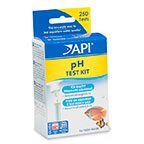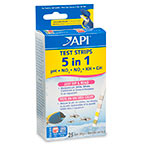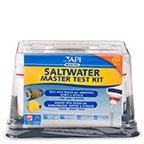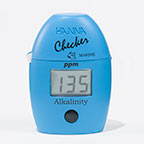Overview
| * | Easy-to-use liquid test solution for nitrite |
| * | Essential when cycling a new aquarium or maintaining ideal water parameters |
| * | Match the color of the test solution against color chart for accurate test results |
Nitrite Test Kit – Toxic nitrite is produced by nitrifying bacteria in the biological filter as it breaks down ammonia. This kit tests for harmful nitrite and measures levels from 0 to 5.0 ppm. 180 tests per kit. For fresh/saltwater.
Why Test For Nitrite?
Testing for the presence of toxic nitrite is essential, so that once detected, steps can be taken to remove it. Otherwise, nitrite in the water will prevent fish from carrying on normal respiration. High levels of nitrite quickly lead to fish death. Even trace amounts of nitrite stress fish, suppressing their immune system and, thereby, increase the likelihood of disease and subsequent fish loss.
Directions for Testing Nitrite
- Fill a clean test tube with 5 ml of water to be tested (to the line on the tube).
- Add 5 drops of Nitrite Test Solution, holding dropper bottle upside down in a completely vertical position to ensure uniformity of drops added to the water sample.
- Cap the test tube and shake the tube for 5 seconds. Do not hold finger over the open end of the tube, as this may affect test results.
- Wait five minutes for the color to develop.
- Read the test results by matching the color of the solution against those on the Nitrite Test Color Chart. The tube should be viewed against the white area beside the color chart. Color comparisons are best made in a well-lit area. The closest match indicates the ppm (mg/L) of nitrite in the water sample. Rinse the test tube with clean water after each use.
What The Test Results Mean
In new freshwater aquariums, the nitrite level will gradually climb to 10 ppm (mg/L) or more. As the biological filter becomes established (in 4 to 6 weeks), nitrite levels will drop to 0 ppm (mg/L). In an established pond or aquarium, the nitrite level should always remain at 0 ppm (mg/L). The presence of nitrite indicates possible over-feeding, too many fish, or inadequate biological filtration.
Monitoring Nitrite Levels
Regular testing for nitrite is an essential part of routine maintenance. Water should be tested for nitrite once a week to make sure the nitrite does not reach undesirable level.



